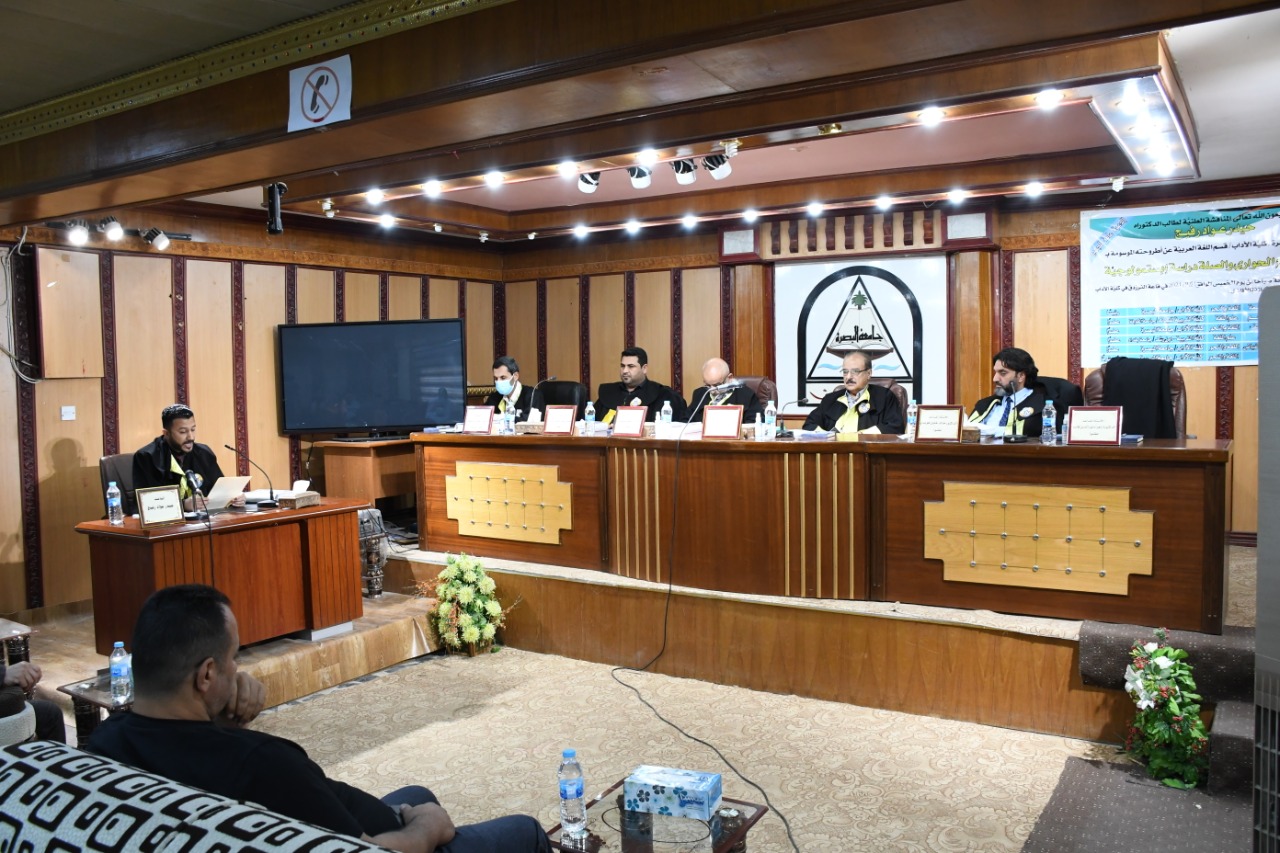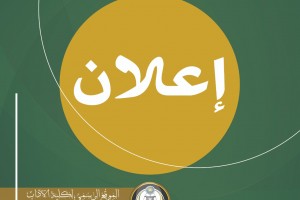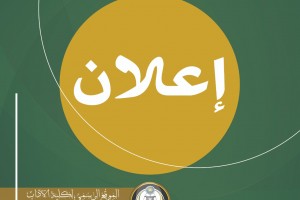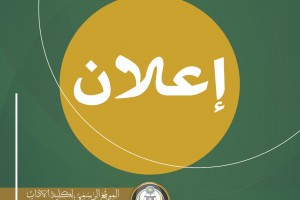

This morning, Tuesday, 21/9/2021, a doctoral thesis, entitled (Dialogical Imperative and Relevancy, an Epistemological Study), was discussed in the Department of Arabic Language at the College of Arts.
The thesis presented by the student Haider Awwad Rafeej included four chapters. The first chapter discussed basic issues: “Epstemology, data, tools, and research”. The second chapter is “a fundamental reading in dialogical imperative and relevancy” the history of the two theories. The third chapter dealt with the dialogical imperative “a linguistic theory and a mechanism for controlling dialogue”. The fourth chapter dealt with the theory of relevancy - an open work strategy in understanding the text.
The thesis aims to answer questions about how the two theories of dialogical imperative and relevancy arose, how did they crystallize, with the effect of who and who were their creators “created before that or did they take the lead”, then what is their relationship to logic, what is the benefit from them and have the results for which they were formulated been achieved?. The epistemological reading is a reading that is not based on belief in previous trials that are taken under the title of certain confiscations, and this means that reliance is only on the results of the epistemological examination.
The thesis concluded that the epistemological reading is the only one capable of answering these questions, as well as the only one capable of describing them and understanding their specifics.
The thesis discussed the views of philosophers, epistemologists, psychologists and linguists, their opinions transmitted in their books on the theories of dialogical imperative and relevancy, and discovered that the two theories exercise their cognitive role in two styles; understanding, and it is governed by the principle of cooperation, and communication, which is governed by the two purposes “information and communication.”








